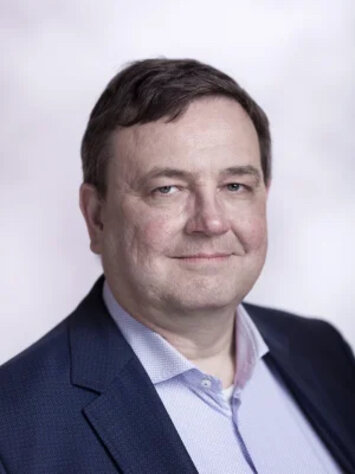Pieter, we'll start right away. After all, the world of AI won't stand still either. So, who are you and what work do you do?
I started my career as a software developer. It wasn't until later in life - I was 37 years old at the time - that I decided to pursue a PhD and enter the scientific field. My research focused on artificial intelligence in video games; an innovative subject at the time I started. I am therefore seen as one of the founders of this research topic. Although I think that is a bit of an exaggeration.
I have been working at Tilburg University for 14 years now, the last 5 of which as a professor. I still like to spend a lot of time doing research. Even though, in practice I am mainly teaching and organizing. Most of my research is done in collaboration with PhD students.
One of your areas of expertise concerns machine learning In games. Not the easiest topic to wrap your head around, is it?
Although the applications of machine learning can sometimes be quite complex, I think that in games it is usually quite simple. You have to think of it this way: the goal of AI is to enable computers to match, or even exceed, humans in terms of intelligence. And in some areas, computers have already reached that point. But what they don't yet possess is generic intelligence; intelligence that can pick up arbitrary tasks. Realizing that form of intellect is a major challenge, but I think it is possible.
However, I don't expect I will be able to witness that realization. But the virtual worlds in computer games are often very simple representations of the real world. I think it will be possible in the foreseeable future to build generic artificial intelligence into these simple worlds. So I have actually chosen a relatively simple research goal, because it is a stepping stone to the ultimate research goal of AI.
How do you explain to laypeople what exactly you do? Family and friends over drinks, for example.
Then the teacher in me comes out; I adjust my wording for the person sitting across from me. Machine learning seems like an abstract topic, but actually everyone encounters it in everyday life. To cite an example: I had missed the invitation to this meeting because my mailbox had discarded the e-mail without me seeing it. It is artificial intelligence that wrongly decided to throw away the message. With machine learning, you can train that artificial intelligence to distinguish important from unimportant e-mails. But the artificial intelligence in the mail program that the University uses is apparently not yet sufficiently trained to do this flawlessly. So for researchers, it's an interesting challenge to see in what ways it could be improved.
What sparked your interest in this subject?
Through my work as a programmer, I regularly ran into problems for which there was no good solution. Many practical problems are so complex that you cannot build a solution for them with manual programming. Self-learning artificial intelligence often can.
And as for the application: games have always fascinated me. I was able to combine the urge to find solutions to complex problems with my love for games in my PhD.
How are you connected to TAISIG?
I have been a member of the core team since its formation, which includes representatives of all departments. Since the resignation of Emilie Aarts due to retirement at the end of June, I have been the new chair of TAISIG. Of course, I don't think I can ever do it as well as he did; he really shaped TAISIG into what it is today. But the community now is set, and I can continue and build TAISIG together with the core team.
What do you hope to achieve with your efforts?
First of all, as Tilburg University, we want to be seen as a major player in the regional and national AI domain. Now we are mainly known as a social sciences/humanities university. Unfortunately, the fact that Tilburg University also covers other sciences has still not penetrated the minds of everyone. In the field of artificial intelligence we have a lot to offer: in the underlying technology, the applications and the ethical and legal domain (ELSA). We even provide the largest university artificial intelligence training program in the Netherlands. But because of the somewhat lacking name recognition, we are excluded in advance from some grant opportunities. It is up to TAISIG to change that.
Within Tilburg University, the role of TAISIG is also to combine, coordinate and strengthen the AI activities taking place in various departments. For example, for someone doing AI-related research, For example, for someone doing AI-related research, TAISIG can serve as a liaison, connecting researchers with individuals within the university who can assist with their research.
Is this viable in the short term? Or is it still mostly for the future?
Thanks to the efforts of Emile Aarts and others, TAISIG is now listed on the map. The main focus now is to increase its visibility.
What will get your undivided attention in the near future?
Initially, we will continue as usual with the TAISIG Talks and Events. In addition, it is important to create more detailed information about AI researchers and activities which is even more accessible to the outside world. The core team of TAISIG has recently been expanded and will start working hard on this starting in September.
Want to learn more about TAISIG? For more information, please click here. Will we see you at the next gathering?

